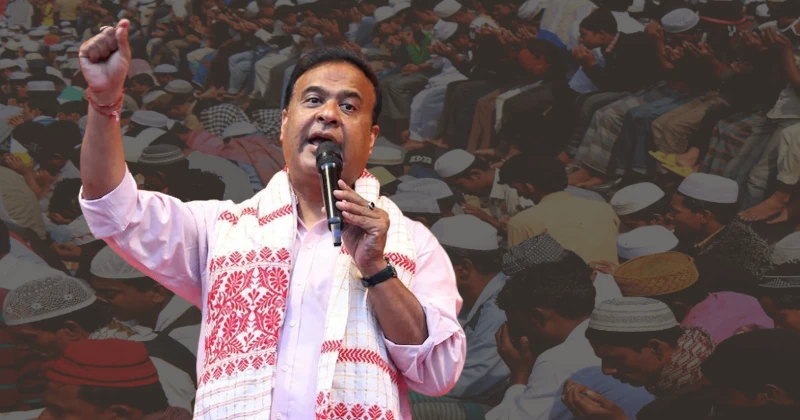Assam Government Plans Law for Life Imprisonment in Love Jihad Cases

Assam Government Plans Law for Life Imprisonment in “Love Jihad” Cases
Guwahati, August 5, 2024 — The Bharatiya Janata Party (BJP) government in Assam, led by Chief Minister Himanta Biswa Sarma, is preparing to introduce legislation that would impose life imprisonment for cases related to “love jihad.” This term is often used by some political and religious groups in India to describe alleged campaigns by Muslim men to convert Hindu women to Islam through marriage.
Chief Minister Sarma, in a statement to the media, reiterated the government’s commitment to addressing “love jihad,” a promise made during the election campaign. “We spoke about ‘love jihad’ during the elections. Soon, we will bring a law which will award life imprisonment in such cases,” Sarma was quoted as saying by the Press Trust of India (PTI).
The proposed legislation is expected to be introduced in the upcoming session of the Assam Legislative Assembly. The move aligns with similar laws enacted by other BJP-ruled states such as Uttar Pradesh and Madhya Pradesh, where stringent measures have been implemented to curb what they term as “forced religious conversions” through marriage.
Background and Context
The concept of “love jihad” has been a contentious and polarizing issue in India. Critics argue that the term is a conspiracy theory with no basis in reality, often used to incite communal tensions and target interfaith marriages. However, proponents believe it is a necessary measure to protect women from being coerced into converting their religion under the guise of marriage.
In Assam, the BJP’s stance on “love jihad” was a significant aspect of their electoral strategy, resonating with a section of the electorate concerned about cultural and demographic changes. The proposed law is seen as an effort by the state government to fulfill its campaign promise and strengthen its support base.
Reactions and Implications
The announcement has elicited a mixed response from various quarters. Supporters of the legislation argue that it is a necessary step to safeguard the rights and freedoms of women. They believe that strict penalties will deter those attempting to exploit religious conversions for ulterior motives.
Conversely, human rights activists and opposition parties have criticized the move, labeling it as a tool to perpetuate communal divisions and undermine individual freedoms. They argue that such laws are prone to misuse and can infringe upon the constitutional rights of citizens to choose their partners.
The proposed law is likely to face legal challenges and intense debate in both the legislative assembly and the public sphere. Legal experts caution that while protecting individuals from coercion is important, any legislation must be carefully crafted to avoid infringing on personal freedoms and rights guaranteed by the Indian Constitution.
Looking Ahead
As the Assam government gears up to introduce the legislation, it remains to be seen how the law will be framed and implemented. The discourse surrounding “love jihad” continues to evoke strong emotions and opinions across the country, reflecting the complex interplay of religion, politics, and personal freedoms in India today.